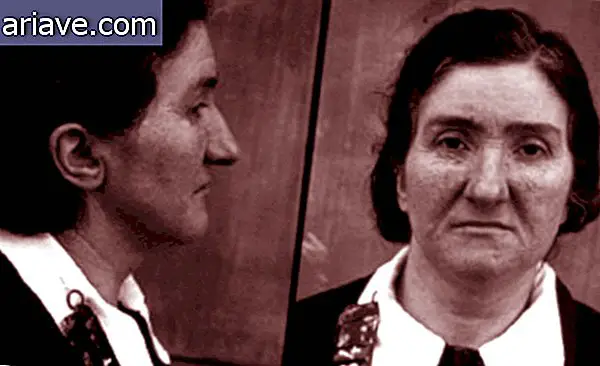Do you know the tragic history of Italian castrati?
If you have never heard of Italian castrati, they were famous opera singers who could achieve normally feminine tones such as soprano, mid-soprano and contralto. And how did these men do that? When they were still boys, those who had great talent identified were castrated to prevent their voice changing with the arrival of puberty.
In fact, castrating boys to preserve female tone was not a practice invented by Italians. As you may know, eunuchs were widely used as servants in antiquity, and it was not long before anyone realized that some of them had extraordinary musical talent.

So much so that there are historical records that the Byzantines were already reveling in the prodigious sound produced by these singers around the year 400. However, it was in 16th century Italy that the castrati really gained prominence - all after Pope Sixtus V banned it. women sing in public.
Brutal procedure
The prohibition of the Catholic Church became a major problem for the opera world, as female voices were indispensable during the execution of great works. In its place, composers began to employ boys. However, once they reached puberty, their voices began to change and therefore their "talents" were lost. It was then that castrations began to stop this natural process and capture the delicate voices forever.
Here's an excerpt from the 1994 movie “Farinelli, ” based on the life of an illustrious 18th-century castrate named Carlo Broschi:
The problem is that, officially, church readings prohibited the amputation of any organ unless the procedure was necessary to save one's life. Thus, when a talented boy was identified, this child was usually taken to a clandestine surgeon and heavily sedated - usually with opium - although access to anesthetics was rare at the time.
Other options involved placing the boy in a warm tub and pressing the carotid artery until the child becomes comatose or giving the poor a cold bath to dampen the area to be operated on or to put the boy in a milk bath. The less aggressive method involved cutting the sperm cords, which are structures that run from the abdomen to the testicles, which caused the scrotum to atrophy over time, but there are records of brutal mutilation as well.
Suffering for art
As a result, castrated boys stopped producing dihydrotestosterone, a more potent form of testosterone that is more easily bound to receptors than the common hormone.

In fact, exposure to testosterone causes boys' vocal cords to increase in size (up to 63%), as well as making the thyroid, a gland in front of the trachea, become larger and thicker. originate the Adam's apple. When the testicles were atrophied or removed, the castrati vocal cords had similar dimensions to those of sopranos women.
Another important factor is that as castrated boys grew older, lack of testosterone caused a number of complications. In some cases growth was impaired, leading to a certain number of castrati being lower than normal. However, in other boys, the lack of the hormone prevented the bone joints from developing normally, which meant that they would not stop growing and have longer legs and arms.

A “positive” aspect - as it were - of this uncontrolled growth is that it could also affect the development of the rib cage, jaw and even the nose. As a result, well-trained castrati not only had thinner voices, but extraordinary lung capacity.
It was not easy to determine precisely when was the perfect time for boys to be castrated, as each organism develops in its own time. But in general, boys who underwent the procedure before the age of 10 were thought to grow up with more feminine characteristics, while boys who underwent this procedure had a more normal development - and could even be sexually active.
Peak and decline
Some castrati have become true stars of their time. Therefore, as they could not have children (for obvious reasons), it was not long before women of high society saw in them the perfect lovers. Spicy rumors even circulated about the eunuch singers, many claiming that they did not experience the same sensations during sex, which gave these men more energy - and earned many a reputation.

According to some sources, the nobles took advantage of the eunuchs' effeminate appearance to make them go unnoticed at parties and events, betraying their jealous husbands right under their noses. Moreover, thanks to the androgynous form, the castrati also aroused the desire of men. However, by not fitting into a specific genre, the truth is that these poor singers lived in a state of perpetual conflict and contradiction.
At the height of the castrati's fame, about 5, 000 boys were castrated every year. Unfortunately, not all of them turned into celebrities worshiped by European society, and most were eventually dismissed as mediocre singers - and doomed to play minor roles in operas or to be part of simple church choirs.

Alessandro Moreschi, the last official castrate retired from his activities in the Sistine Chapel in 1913. However, many historians suspect that another singer, the Italian Domenico Mancini, who was part of the papal choir until 1959, was also a secret eunuch. Here is an old recording of Moreschi singing “Hostias et preces”:
* Posted on 11/30/2016










